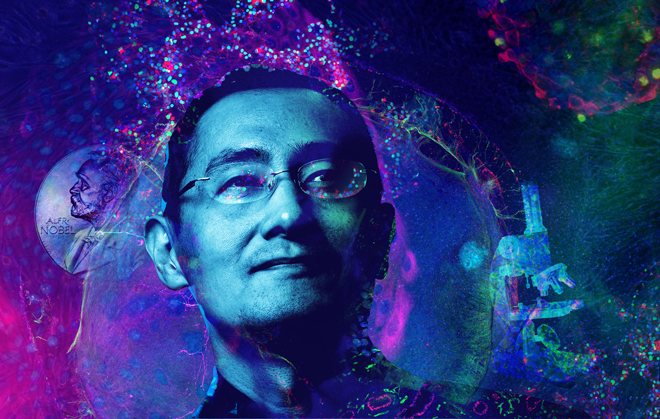Programme
10.00–11.30 A new era of medicine with induced pluripotent stem cells – iPS Cells
Open lecture with audience Q&A
Shinya Yamanaka, 2012 Nobel Laureate in Physiology or Medicine
Venue: University of Oslo, Blindern, Georg Sverdrups hus, Auditorium 1
12.00–13:00 Implications of Stem Cell Therapy for Patients and Society
Panel discussion with
- Shinya Yamanaka, 2012 Nobel Laureate in Physiology or Medicine
- Morten Carstens Moe, Professor II, Faculty of Medicine, University of Oslo
- Anna Smajdor, Associate Professor, Faculty of Humanities, University of Oslo
- Birgit Skarstein, Athlete and member of the Norwegian Biotechnology Advisory Board
Venue: University of Oslo, Blindern, Vilhelm Bjerknes' hus, the Foyer of the Science Library
Register
You must register by Friday 1 September if you wish to attend. You can register via the UiO: Life Science website. Link to registration form.
About Shinya Yamanaka
Shinya Yamanaka, born in Osaka 1962, Nobel Laureate in Physiology or Medicine 2012.
Professor Shinya Yamanaka is most recognised for his discovery of induced pluripotent stem (iPS) cells, which are differentiated cells that have been reprogrammed to the pluripotent state. He is the director of the Center for iPS Cell Research and Application (CiRA), which was founded in 2008 in response to his discovery, at Kyoto University, and a senior investigator at the Gladstone Institutes in the United States.
He was an orthopaedic surgeon, earning his MD in 1987 from Kobe University. After receiving a PhD in 1993 from Osaka City University (OCU), he went to the Gladstone Institutes as a postdoctoral fellow, where he first learned genetics and the use of embryonic stem cells. In 1996, he returned to Japan and has since continuously researched pluripotency. After serving as a faculty member at OCU and Nara Institute of Science and Technology, he has been a professor at Kyoto University since 2004.
The awards and honours he has received include the Albert Lasker Basic Medical Research Award, the Kyoto Prize in Advanced Technology, the Wolf Prize in Medicine, the Imperial Prize, the Japan Academy Prize, the Order of Culture (Japan) and the Nobel Prize in Physiology or Medicine.
Source: Nobel Media
